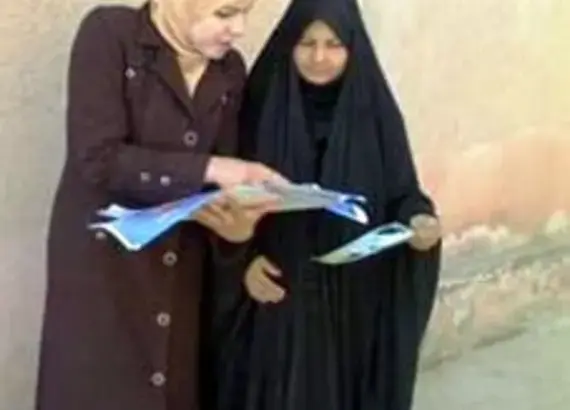
Success Story
Iraqis Discouraged by Post-Election Government Negotiations
Iraqis are becoming increasingly frustrated about the delay in the formation of a new government five months after last spring's parliamentary elections, and a majority of them believe that the country is headed in the wrong direction, according to a recent public opinion poll conducted by NDI.
The survey, based on 4,000 interviews conducted June 21-26, showed that while no one choice for prime minister had a majority, the leading candidate among those polled was Ayad Allawi, representing the Iraqiyya coalition, which got the most votes in the March 7 elections.
Seventy percent of those surveyed were concerned that a government has not yet been formed, and 63 percent said they believed the country is headed in the wrong direction overall, in marked contrast to the months before the elections, when 67 percent of Iraqis felt that the country's situation was the same or better than before.
Forty-two percent of those polled thought Allawi should become the next prime minister, compared to 14 percent, the next largest percentage, who identified current Prime Minister Nouri Al Maliki as their favored choice for the post.
The poll findings show some regional disparities: Allawi has the support of 68 percent of those surveyed in Baghdad and 63 percent of residents in the Arab provinces north of Baghdad. Though Maliki garnered the most support in the Shi'a-dominant southern provinces, less than one quarter identified him as the top candidate, while close behind him, Allawi was chosen as the top candidate by 21 percent of respondents. These results indicate that Allawi dominates as the choice for prime minister among Sunni respondents, but also has significant levels of support among Shi'a respondents.
This personal support is reflected in the beliefs about which coalition should be given the first opportunity to form a government. Fifty-nine percent of all respondents believe that Allawi's Iraqiyya coalition, which won the most seats in the elections, should be given the first opportunity. However, 50 percent of residents in the southern, Shi'a-dominant provinces believe that the merged State of Law and Iraqi National Alliance coalition should have the first opportunity, despite neither of those coalitions gaining the most seats in the elections.
The increasingly pervasive opinion among Iraqis is that the parties and politicians are guided mostly by their own interests, rather than by the interests of the electorate, a feeling expressed by 60 percent of those surveyed. While government formation talks are stalled, Iraqis are searching for progress on issues of concern, including basic services, social issues, the economy, and corruption. They are also concerned about foreign interference in Iraqi affairs, a concern that has been exacerbated by the lack of a new government.
Consequently, after an election that 61 percent judged to have been largely or somewhat free and fair, almost half of respondents were not sure or definitely would not vote if elections were held again now. This number includes more than 50 percent of respondents from Baghdad and the Shi'a-dominant southern governorates. This finding indicates that most Iraqis believe that they expressed their opinion in the March parliamentary elections and now just want the politicians to get on with the business of forming a government and solving the pressing issues that affect people's everyday lives.
The poll shows that Iraqis' frustration with the lack of a new government is an opinion held equally by men and women, old and young, employed and unemployed. The main divisions among the population are based on sectarian and ethnic identities and geographic location. Thus, in Baghdad and northern and western provinces of Anbar, Diyala, Salah al Din, Kirkuk and Ninewah, there is more support for secular government, especially one led by Allawi's Iraqiyya coalition. In the southern provinces, there is greater cynicism and less unity of opinion over what type of government should emerge from the election. In the Kurdish north, people want their region's representatives to have a place in the government and for that government to focus on the key economic and social concerns of provision of basic services, employment and inflation.
Related:
Pictured above: An Iraqi woman distributes voter education materials before the election.
Published on July 30, 2010





